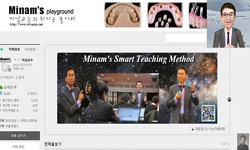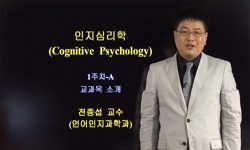This study reviews two main perspectives, static and dynamic, on the development of a global mindset. From the static perspective, a global mindset is defined as an inborn attitude that is fixed, implicit and not easily changed. The dynamic perspectiv...
http://chineseinput.net/에서 pinyin(병음)방식으로 중국어를 변환할 수 있습니다.
변환된 중국어를 복사하여 사용하시면 됩니다.
- 中文 을 입력하시려면 zhongwen을 입력하시고 space를누르시면됩니다.
- 北京 을 입력하시려면 beijing을 입력하시고 space를 누르시면 됩니다.
https://www.riss.kr/link?id=A106342358
- 저자
- 발행기관
- 학술지명
- 권호사항
-
발행연도
2019
-
작성언어
English
-
주제어
Global Mindsets ; Cognition ; Skills ; Attitude ; Global Motivation ; Language Skills ; International Business Class ; 글로벌 마인드셋 ; 인지 ; 기량 ; 태도 ; 글로벌 동기부여 ; 언어능력 ; 국제경영 분야 수업
-
등재정보
KCI등재
-
자료형태
학술저널
- 발행기관 URL
-
수록면
79-110(32쪽)
-
KCI 피인용횟수
0
- DOI식별코드
- 제공처
-
0
상세조회 -
0
다운로드
부가정보
다국어 초록 (Multilingual Abstract)
This study reviews two main perspectives, static and dynamic, on the development of a global mindset. From the static perspective, a global mindset is defined as an inborn attitude that is fixed, implicit and not easily changed. The dynamic perspective, on the other hand, views a global mindset as a growth mindset that is flexible, explicit and can be developed by learning new experiences. To provide a clear understanding about the development of a global mindset, this study examines whether it has a static nature that is difficult to change or a dynamic nature that can change in a short period of time. Based on the literature, we categorize the global mindset into three dimensions—cognition, skills and attitude—and analyze the static or dynamic characteristics of each dimension.
Using a sample of 259 undergraduate students, we conducted a non-equivalent control group design. We surveyed 185 students who took an international business class (treatment group) and 74 students who participated in a managerial accounting class (control group), during a semester. Then, we compared the students’ global mindsets (cognition, skills and attitude) before and after the classes. The results revealed that the students’ cognition and skills increased after taking the international business class, but there was no difference in attitude between the start and end of the semester. In the control group, the students’ global mindsets did not change after the managerial accounting class. We also found that there were positive moderating effects of global motivation and language skills. This meant that the effectiveness of the IB class on the global mindset was strengthened with a high level of global motivation and also language skills. We discussed the implications, recommendations for future research and the limitations of our study.
참고문헌 (Reference)
1 Reiche, B. S., "Why and How Does Shared Language Affect Subsidiary Knowledge Inflows? A Social Identity Perspective" 46 (46): 528-551, 2015
2 Brannen, M. Y., "When Mickey Loses Face: Recontextualization, Semantic Fit, and the Semiotics of Foreignness" 29 (29): 593-616, 2004
3 Chen, G., "When Does Cross-cultural Motivation Enhance Expatriate Effectiveness? A Multilevel Investigation of the Moderating Roles of Subsidiary Support and Cultural Distance" 53 (53): 1110-1130, 2010
4 Levy, O., "What We Talk about When We Talk about ‘Global Mindset’: Managerial Cognition in Multinational Corporations" 38 (38): 231-258, 2007
5 Smith, E. R., "What Do Connectionism and Social Psychology Offer Each Other?" 70 (70): 893-912, 1996
6 Reynolds, R. E., "Views of Knowledge Acquisition and Representation: A Continuum from Experience Centered to Mind" 31 (31): 93-104, 1996
7 Gawronski, B, "Unraveling the Processes Underlying Evaluation: Attitudes from the Perspective of the APE Model" 25 (25): 687-717, 2007
8 Kefalas, A. G., "Think Globally, Act Locally" 40 (40): 547-562, 1998
9 Javidan, M, "The ‘Global Mindset’ of Managers" 42 (42): 145-155, 2013
10 Jiang, W., "The Relationship between Culture and Language" 54 (54): 328-334, 2000
1 Reiche, B. S., "Why and How Does Shared Language Affect Subsidiary Knowledge Inflows? A Social Identity Perspective" 46 (46): 528-551, 2015
2 Brannen, M. Y., "When Mickey Loses Face: Recontextualization, Semantic Fit, and the Semiotics of Foreignness" 29 (29): 593-616, 2004
3 Chen, G., "When Does Cross-cultural Motivation Enhance Expatriate Effectiveness? A Multilevel Investigation of the Moderating Roles of Subsidiary Support and Cultural Distance" 53 (53): 1110-1130, 2010
4 Levy, O., "What We Talk about When We Talk about ‘Global Mindset’: Managerial Cognition in Multinational Corporations" 38 (38): 231-258, 2007
5 Smith, E. R., "What Do Connectionism and Social Psychology Offer Each Other?" 70 (70): 893-912, 1996
6 Reynolds, R. E., "Views of Knowledge Acquisition and Representation: A Continuum from Experience Centered to Mind" 31 (31): 93-104, 1996
7 Gawronski, B, "Unraveling the Processes Underlying Evaluation: Attitudes from the Perspective of the APE Model" 25 (25): 687-717, 2007
8 Kefalas, A. G., "Think Globally, Act Locally" 40 (40): 547-562, 1998
9 Javidan, M, "The ‘Global Mindset’ of Managers" 42 (42): 145-155, 2013
10 Jiang, W., "The Relationship between Culture and Language" 54 (54): 328-334, 2000
11 Fredriksson, R., "The Multinational Corporation as a Multilingual Organization: The Notion of a Common Corporate Language" 11 (11): 406-423, 2006
12 Luo, Y, "The Multinational Corporation as a Multilingual Community: Language and Organization in a Global Context" 37 (37): 321-339, 2006
13 Kyndt, E., "The Direct and Indirect Effect of Motivation for Learning on Students' Approaches to Learning through the Perceptions of Workload and Task Complexity" 30 (30): 135-150, 2011
14 Varela, O. E, "The Development of the Global Manager:An Empirical Study on the Role of Academic International Sojourns" 13 (13): 187-207, 2014
15 Govindarajan, V, "Success Is All in the Mindset"
16 Holtbrügge, D, "Study Abroad Programs: Individual Motivations, Cultural Intelligence, and the Mediating Role of Cultural Boundary Spanning" 15 (15): 435-455, 2016
17 Cole, M. S., "Student Learning Motivation and Psychological Hardiness: Interactive Effects on Students' Reactions to a Management Class" 3 (3): 64-85, 2004
18 Deci, E. L., "Self-determination in a Work Organization" 74 (74): 580-590, 1989
19 Bauer, K. N., "Re-examination of Motivation in Learning Contexts: Meta-analytically Investigating the Role Type of Motivation Plays in the Prediction of Key Training Outcomes" 31 (31): 33-50, 2016
20 Piekkari, R, "Preface: Language and Communication in International Management" 35 (35): 3-9, 2005
21 Kotra, "Overseas Korean Business Directory DB" Kotra 2019
22 Damanpour, F., "Organizational Innovation: A Meta-analysis of Effects of Determinants and Moderators" 34 (34): 555-590, 1991
23 Rhinesmith, S. H., "Open the Door to a Global Mindset" 49 (49): 34-44, 1995
24 Hendrickson, A. R., "On the Test-retest Reliability of Perceived Usefulness and Perceived Ease of Use Scales" 17 (17): 227-230, 1993
25 Ajzen, I., "Nature and Operation of Attitudes" 52 (52): 27-58, 2001
26 Lücke, G., "Multiculturalism from a Cognitive Perspective: Patterns and Implications" 45 (45): 169-190, 2014
27 Lauring, J, "Multicultural Organizations: Common Language and Group Cohesiveness" 10 (10): 267-284, 2010
28 Deci, E. L., "Motivation and Education: The Self-determination Perspective" 26 (26): 325-346, 1991
29 Arnold, H. J., "Moderator Variables: A Clarification of Conceptual, Analytic, and Psychometric Issues" 29 (29): 143-174, 1982
30 Dweck, C. S., "Mindsets: Developing Talent through a Growth Mindset" 21 (21): 4-7, 2009
31 Dweck, C. S., "Mindsets and Human Nature: Promoting Change in the Middle East, the Schoolyard, the Racial Divide, and Willpower" 67 (67): 614-622, 2012
32 Dweck, C. S., "Mindset: The New Psychology of Success" Random House 2014
33 Kennedy, F., "Mindset Not Skill Set: Evaluating in New Paradigms of Leadership Development" 15 (15): 10-26, 2013
34 Hunter, J. E, "Methods of Meta-analysis: Correcting Error and Bias in Research Findings" Sage 2004
35 King, D. R., "Meta‐Analyses of Post‐Acquisition Performance: Indications of Unidentified Moderators" 25 (25): 187-200, 2004
36 Flavell, J. H., "Metacognition and Cognitive Monitoring: A New Area of Cognitive-developmental Inquiry" 34 (34): 906-911, 1979
37 Story, J. S., "Meeting the Challenges of Effective International HRM: Analysis of the Antecedents of Global Mindset" 53 (53): 131-155, 2014
38 Dale, H. S., "Learning Theories: An Educational Perspective" Macmillan 1991
39 Ryan, R. M, "Intrinsic and Extrinsic Motivations: Classic Definitions and New Directions" 25 (25): 54-67, 2000
40 Lane, H. W., "International Management Behavior: Leading with a Global Mindset, Chichester" Wiley 2009
41 Marschan-Piekkari, R., "In the Shadow: The Impact of Language on Structure, Power and Communication in the Multinational" 8 (8): 421-440, 1999
42 Smith, E. R, "Implicit Measures of Attitudes" Guilford Press 247-264, 2007
43 Petty, R. E., "Implicit Ambivalence from Attitude Change: An Exploration of the PAST Model" 90 (90): 21-41, 2006
44 Sharma, S., "Identification and Analysis of Moderator Variables" 18 (18): 291-300, 1981
45 Rhinesmith, S. H., "Global Mindsets for Global Managers" 46 (46): 63-69, 1992
46 Story, J. S, "Global Mindset: A Construct Clarification and Framework" 18 (18): 377-384, 2011
47 Kedia, B. L, "Global Managers: Developing a Mindset for Global Competitiveness" 34 (34): 230-251, 1999
48 Kotra, "Foreign Investment Ombudsman Annual Report" Kotra 2018
49 Bowen, D. E, "Exploring the Role of ‘Global Mindset’ in Leading Change in International Contexts" 45 (45): 239-260, 2009
50 Dweck, C. S., "Even Geniuses Work Hard" 68 (68): 16-20, 2010
51 Morris, S. B., "Estimating Effect Sizes from Pretest-Posttest-Control Group Designs" 11 (11): 364-386, 2008
52 Yamao, S, "Employee Commitment to Corporate Globalization:The Role of English Language Proficiency and Human Resource Practices" 50 (50): 168-179, 2015
53 Lovvorn, A. S, "Developing a Global Mindset: The Relationship between an International Assignment and Cultural Intelligence" 2 (2): 275-283, 2011
54 Vallerand, R. J., "Deci and Ryan's Self-determination Theory: A View from the Hierarchical Model of Intrinsic and Extrinsic Motivation" 11 (11): 312-318, 2000
55 Barner-Rasmussen, W., "Cultural and Language Skills as Resources for Boundary Spanning within the MNC" 45 (45): 886-905, 2014
56 Gupta, A. K, "Cultivating a Global Mindset" 16 (16): 116-126, 2002
57 Peltokorpi, V., "Corporate Language Proficiency and Reverse Knowledge Transfer in Multinational Corporations: Interactive Effects of Communication Media Richness and Commitment to Headquarters" 21 (21): 49-62, 2015
58 Siemens, G., "Connectivism: A Learning Theory for the Digital Age" 2 (2): 3-10, 2005
59 Fodor, J. A, "Connectionism and Cognitive Architecture:A Critical Analysis" 28 (28): 3-71, 1988
60 Beck, A. T., "Comparison of Beck Depression Inventories-IA and-II in Psychiatric Outpatients" 67 (67): 588-597, 1996
61 Cliffe, S., "Companies Don’t Go Global, People Do" 93 (93): 82-85, 2015
62 Hamilton, R., "Being of Two Minds:Switching Mindsets Exhausts Self-regulatory Resources" 115 (115): 13-24, 2011
63 Ertmer, P. A, "Behaviorism, Cognitivism, Constructivism:Comparing Critical Features from an Instructional Design Perspective" 6 (6): 50-72, 1993
64 Bohner, G, "Attitudes and Attitude Change" 62 (62): 391-417, 2011
65 Gawronski, B., "Attitudes Can Be Measured! But What is an Attitude?" 25 (25): 573-581, 2007
66 Arora, A., "An Exploratory Analysis of Global Managerial Mindsets: A Case of US Textile and Apparel Industry" 10 (10): 393-411, 2004
67 Clapp-Smith, R, "Advances in Global Leadership" Emerald Group Publishing Limited 205-228, 2014
68 Andresen, M, "A Systematic Literature Review on the Definitions of Global Mindset and Cultural Intelligence-Merging Two Different Research Streams" 28 (28): 170-195, 2017
69 Kenny, D. A., "A Quasi-experimental Approach to Assessing Treatment Effects in the Nonequivalent Control Group Design" 82 (82): 345-362, 1975
70 Wilson, T. D., "A Model of Dual Attitudes" 107 (107): 101-126, 2000
71 Gilboa, S., "A Meta‐Analysis of Work Demand Stressors and Job Performance: Examining Main and Moderating Effects" 61 (61): 227-271, 2008
72 Nummela, N., "A Global Mindset—A Prerequisite for Successful Internationalization" 21 (21): 51-64, 2004
동일학술지(권/호) 다른 논문
-
해외자회사 CEO의 본사파견 여부가 해외자회사의 성과에 미치는 영향: 한국진출 외국인투자 제조기업을 중심으로
- 한국국제경영학회
- 한경수
- 2019
- KCI등재
-
- 한국국제경영학회
- 한충민
- 2019
- KCI등재
-
사회적 공감이 친환경 소비행동에 미치는 영향: 중국 소비자를 중심으로
- 한국국제경영학회
- 이유경
- 2019
- KCI등재
-
미국시장에서 모바일 간편 결제 서비스의 지각된 혜택이 사용의도에 미치는 영향에 관한 연구
- 한국국제경영학회
- 현효원
- 2019
- KCI등재
분석정보
인용정보 인용지수 설명보기
학술지 이력
| 연월일 | 이력구분 | 이력상세 | 등재구분 |
|---|---|---|---|
| 2026 | 평가예정 | 재인증평가 신청대상 (재인증) | |
| 2020-01-01 | 평가 | 등재학술지 유지 (재인증) |  |
| 2017-01-01 | 평가 | 등재학술지 유지 (계속평가) |  |
| 2013-01-01 | 평가 | 등재학술지 유지 (등재유지) |  |
| 2010-01-01 | 평가 | 등재학술지 유지 (등재유지) |  |
| 2008-01-01 | 평가 | 등재학술지 유지 (등재유지) |  |
| 2006-07-21 | 학회명변경 | 영문명 : 미등록 -> Korean Academy of International Business |  |
| 2006-01-01 | 평가 | 등재학술지 유지 (등재유지) |  |
| 2004-01-01 | 평가 | 등재학술지 유지 (등재유지) |  |
| 2001-07-01 | 평가 | 등재학술지 선정 (등재후보2차) |  |
| 1999-01-01 | 평가 | 등재후보학술지 선정 (신규평가) |  |
학술지 인용정보
| 기준연도 | WOS-KCI 통합IF(2년) | KCIF(2년) | KCIF(3년) |
|---|---|---|---|
| 2016 | 2.45 | 2.45 | 2.15 |
| KCIF(4년) | KCIF(5년) | 중심성지수(3년) | 즉시성지수 |
| 2.25 | 2.33 | 4.114 | 0.56 |





 KCI
KCI KISS
KISS






